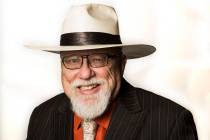When hope diminishes, terror has an open door
Soon after the Boston Marathon bombings, well before the funerals were arranged, the amputations completed and medications for post-traumatic stress disorder dispensed, the questions began.
What more can be done to protect the public from an al-Qaida operation? Or from, say, a Timothy McVeigh, whose 1995 bombing of an Oklahoma City federal building that killed 168 people and injured hundreds more was basically his nut-job response to the Army finding him too crazy to be part of the Green Berets?
Those questions will probably be no easier to answer than those raised after the December shooting of students and teachers by a deranged young man at Newtown, Conn. –– questions giving birth to a public health response that largely consists of arming teachers.
We’ve been about the business of protecting the public health from terrorists, of course, since 9/11. The Department of Homeland Security, created in the aftermath of the attacks but unable to pass an audit a decade later, has spent an astonishing $800 billion, more money than NASA has spent since its creation in 1958. You have to feel safer, though, because money was spent on an outdoor latrine on wheels and on an underwater robot for Columbus, Ohio, which has no major rivers or lakes nearby.
Still, last year the Government Accountability Office issued a report that found, incredibly, that there were outdated and incomplete plans for responding to a domestic attack, including confusion about the chain of command should an attack occur.
Even if what happened in Boston turns out to have a foreign hand, to largely ignore what is happening domestically, particularly anger building among young people who see no hope for economic opportunity, can have disastrous consequences, according to a foreign journalist who has watched homegrown terrorists tear the fabric of his country apart.
Kipchumba Some, a Kenyan who’s working with the Review-Journal this spring as part of a journalist exchange program, said a long-standing high unemployment rate in his country –– it’s now around 40 percent, 60 percent of whom are young people –– has caused many young men to join al-Qaida, which has strong roots in nearby Somalia.
Though al-Qaida bombed the American embassy in Nairobi in 1998, killing more than 200 people in the nation’s capital and injuring thousands more, Some said very few Kenyans were sympathetic to the organization then.
“But people sense they have no real hope for getting jobs and getting ahead with families, they get angry and want to lash out,” he said. “Our educational system isn’t helping them as much as it should either.”
A bleak future becomes a breeding ground for al-Qaida, Some said, which is happy to give young men an outlet for their anger.
Now, all too frequently there are “small bombings” in Nairobi, the Kenyan capital where Some works.
Less than a decade ago, Some can remember going to bars, restaurants, his office without being searched.
Today, Some’s always searched going into any public place. Even when he arrives at work and sees the same security personnel, his car is searched.
“People don’t really mind the security measures because they know it’s for their own good,” he said, though he did recall one woman who worked at a mall who got fired because she grew tired of being searched.
What’s happened with Kenya because of long-term unemployment can’t happen here. Or can it? In the past, anger over joblessness helped fuel riots that hurt those rioting more than anyone else. What is known is that in America’s inner cities, where education gets short shrift, unemployment runs as high as in Kenya, 40 percent, which sociologists blame for high crime rates.
It’s also true studies show that even Americans lucky enough to have a job are now angry about a lack of upward mobility. They are aware that a huge share of the country’s economic growth during the past 30 years has gone to the top one-hundredth of 1 percent, who now make an average $27 million per household, while the average income for the bottom 90 percent is $31,244.
If Some had to advise America, he said he’d make sure it remained a place where people saw hope for bettering themselves in the future, that it continued to have the robust middle class he had read about.
“You don’t have to worry about homegrown terrorism that way,” he said.
Contact reporter Paul Harasim at pharasim@
reviewjournal.com or 702-387-2908.

















